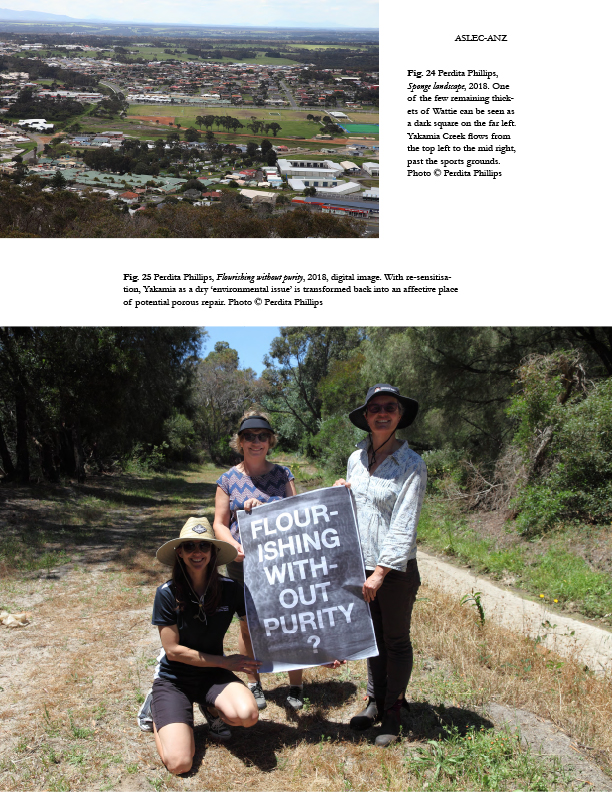Seeping, maintaining, flooding and repairing
How to act in a both/and world
DOI:
https://doi.org/10.60162/swamphen.8.16684Keywords:
porous repair, against purity, stormwater, Menang Boodja, listening, sound art, maintenance art, more-than-human, Kinjarling, Albany, walking art, Alexis Shotwell, urban water management, Common Enemy Doctrine, socially-engaged art, multispecies entanglementAbstract
This paper outlines the experiences of a short artist in residency called Follow the water at the Vancouver Arts Centre in Albany, Western Australia that began in November-December 2018. Investigating the local network of urban and peri-urban drainage, the project was an attempt to reframe drains from what they are normally seen as—of a way of transferring ‘problems’ to elsewhere—into a space of reparative engagement. Intimate, makeshift walks were taken with drain allies along road culverts and agricultural drains and through snaky, polluted and weedy country. Walks were recorded with cyanotypes and a further cyanotype workshop was conducted with the public on the subject of local watercourses. Whilst being attentive to the local stories of water, settler history and regeneration, the project nevertheless attempted to problematise the current quasi-legal and commonplace notions which see the flow of water leaving a property downstream (and downslope) as being ‘not my problem’. In a small way, this art project works through the “impurity of caring” (that acts of caring contain the wish that it were not so (Shotwell), at the same time that they are entangled) with a tactical move that I have termed “porous repair.” It therefore provides a short example of the complications of thinking through water stories using artistic means.

Downloads
Published
Issue
Section
License
Authors who publish with this journal agree to the following terms:- Authors retain copyright and grant the journal right of first publication with the work simultaneously licensed under a Creative Commons Attribution License that allows others to share the work with an acknowledgement of the work's authorship and initial publication in this journal.
- Authors are able to enter into separate, additional contractual arrangements for the non-exclusive distribution of the journal's published version of the work (e.g., post it to an institutional repository or publish it in a book), with an acknowledgement of its initial publication in this journal.
- Authors are permitted and encouraged to post their work online (e.g., in institutional repositories or on their website) prior to and during the submission process, as it can lead to productive exchanges, as well as earlier and greater citation of published work (See The Effect of Open Access).
